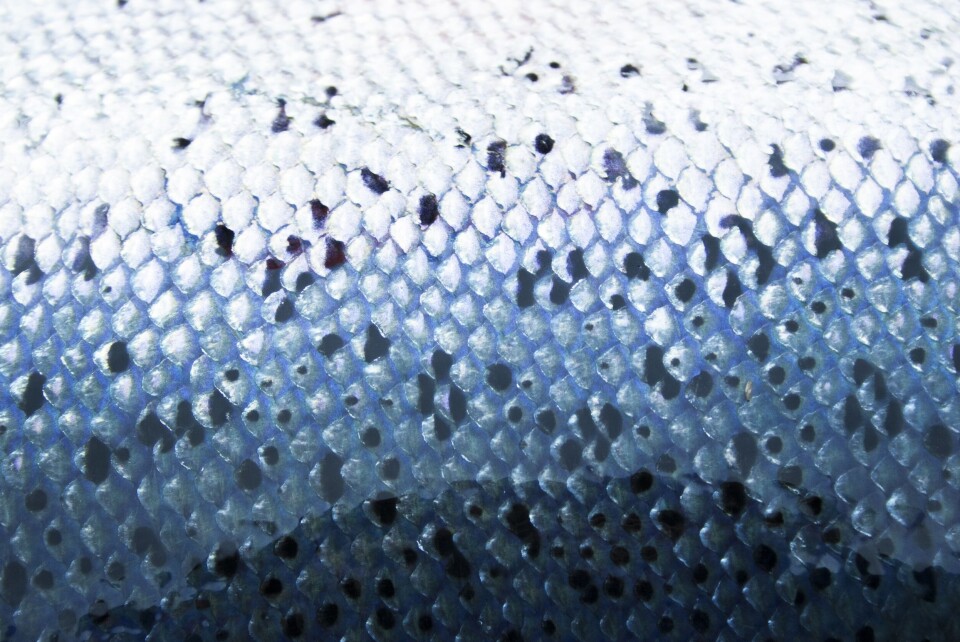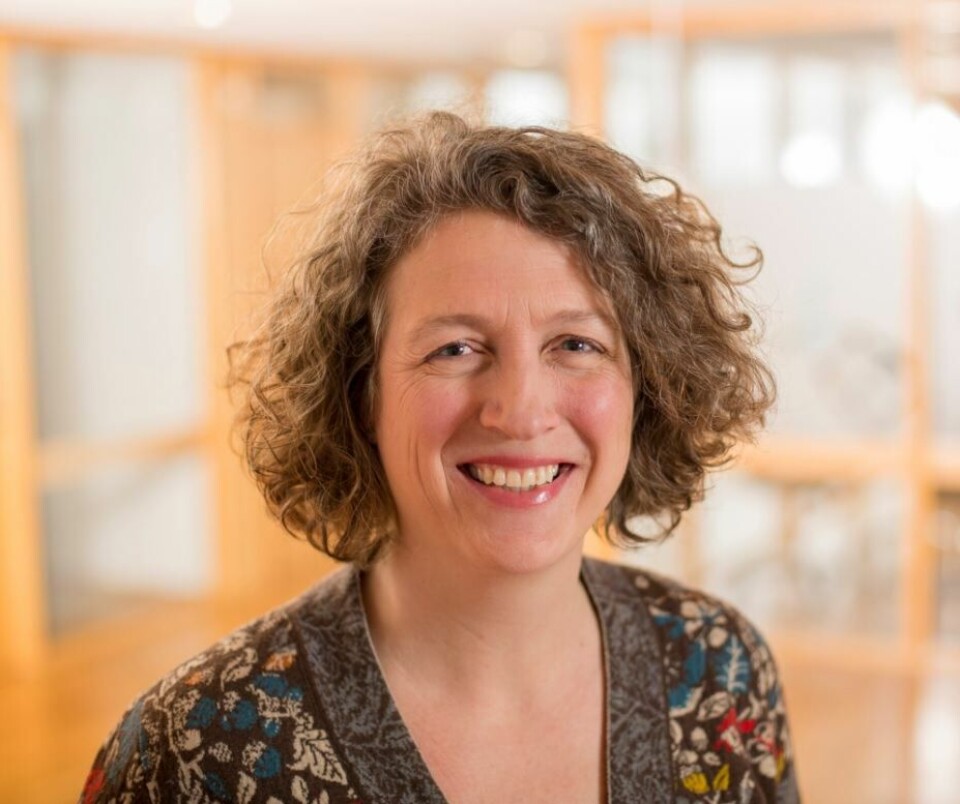
Tipping the scales towards better skin health
Salmon and trout egg supplier AquaGen and research partners have started a project to produce fish with more robust skin health. The goal is to minimise handling damage and wounds in farmed salmon.

AquaGen is owner of the project, called Robust Salmon Skin -Genetics, Vaccination and Nutrition, which started on January 1. The project manager is Trina Galloway, a senior researcher with the Norwegian breeder, which supplies eggs to Scottish fish farmers through its office in Stirling.
The aim of the project is to improve the skin health of salmon and reduce wound-related problems by combining breeding, vaccines and feed.
"This will be achieved by selecting salmon with the best genetics for improved wound healing, Moritella viscosa resistance and increased protection against M. viscosa, along with optimal nutrition for faster wound healing and improved resistance to the bacterium," Galloway told fishfarmingexpert.com’s sister site, kyst.no. M. viscosa is the bacterium that causes winter ulcer disease.
The background for the research project states that wound-related mortality is a relatively big problem in the salmon farming industry today, and the situation is worsened by frequent treatments against sea lice and amoebic gill disease (AGD). Recent observations indicate that rough treatment to remove parasites results in surface damage to a salmon's skin and gills, Galloway explained.
Increased understanding of wounds
Although this bacterial disease is most common in northern Norway, she pointed out that winter ulcer disease is nationwide at water temperatures below 10 degrees. Infection is promoted by skin damage and affected fish can survive for prolonged periods, or develop deep sores and a systemic infection with acute loss, she adds.
Even invisible damage to the skin's surface, she pointed out, may cause secondary infections over time after delicing.
“The loss rate of these treatments, or any secondary infections, varies considerably between groups of fish and treatment,” said Galloway. “Accordingly, health status prior to treatment, including the physical condition of the skin, appears important in order to avoid loss and fish welfare problems. Apart from mechanical and lice-related wounds, salmon can also develop winter ulcers by infection of M. viscosa.”
Enhance biological understanding
Genomics and microscopy analysis of field samples and experiments will enhance biological understanding of skin health and wound healing, improve genetics for optimal protection after vaccination and tailor the feed to reduce wound-related losses in Norwegian and international salmon farming, she said.
AquaGen has Skretting ARC and Vaxxinova Norway as business partners in the project, and Norway’s Veterinary Institute is a research partner.
The project will also purchase research services from a number of research environments in Norway and abroad. In total, 10-15 people will be involved.
The project period is from January 1, 2018 to December 31, 2021, and the companies have a total budget of more than NOK 8 million (£743,000) over four years.
"The project is an innovation project in the business sector within the Research Council's HAVBRUK2 programme, which provides NOK 2.5 million in support. In addition, the participating companies will also seek funding of NOK 1.5 million in tax refunds. All in all, this represents up to 50% public support for the project, something we are very pleased with," said Galloway.























































